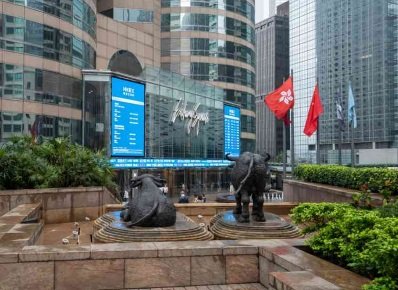
Hong Kong has reclaimed its position as the freest economy in the world, surpassing Singapore, according to the Fraser Institute’s Economic Freedom of the World report. This recognition is not just a badge of honor but a significant rebound for Hong Kong, especially considering recent concerns about the city’s economic trajectory under increased pressure from Beijing.
A Close Contest in Economic Scores
In the latest report, Hong Kong scored 8.58, narrowly edging out Singapore’s 8.55. This slight difference reflects the intense competition between the two cities, both renowned for their business-friendly environments and global financial significance. Trailing behind were Switzerland, New Zealand, and the United States, securing the third, fourth, and fifth positions, respectively. At the bottom of the ranking, Venezuela continues to grapple with severe economic challenges, receiving a score of 3.02.
Positive Trends Amid Uncertainty
Hong Kong’s recovery in this ranking comes after it was recently named Asia’s top financial center, reaffirming its status as a global economic powerhouse. For Hong Kong’s leader, John Lee, this news bolsters his efforts to rebuild and enhance the city’s reputation on the global stage, especially in light of the turbulence caused by the pandemic and political unrest. The city’s resilience in maintaining its economic dynamism, despite these challenges, is seen as a victory.
Concerns About Future Economic Freedom
However, the Fraser Institute’s report also came with a cautionary note. Despite Hong Kong’s regained status, its economic freedom has been on a downward trajectory in recent years. The Institute voiced concerns about China’s increasing influence over the city, particularly regarding its judicial independence and governance. Many fear that if this trend continues, Hong Kong’s economic freedom could further deteriorate, eroding the very foundations that have made it a financial hub.
A Global Decline in Economic Freedom
Hong Kong’s resurgence in the rankings comes at a time when global economic freedom is on the decline. According to the Fraser Institute, this marks the third consecutive year of shrinking freedoms, reversing the progress seen in previous decades. The global pandemic, geopolitical tensions, and shifts in national policies are contributing factors to this unsettling trend, which could reshape the future of global economic landscapes. Since 1970, the Fraser Institute has monitored these changes, offering insights into how countries’ economic policies evolve over time.
A Commitment to Uphold Economic Stability
The Hong Kong government welcomed the news of the city’s regained title, emphasizing its commitment to upholding the rule of law and promoting a stable, free-market economy. While concerns about external influences remain, officials in Hong Kong continue to assert that the city will protect its legal and economic autonomy, ensuring it remains a competitive global player.
About Hong Kong: A City of Contrasts and Growth
Hong Kong’s economic prowess is matched by its unique cultural and urban landscape. Famous for the world’s longest escalator system, spanning 800 meters, and home to over 1,500 skyscrapers, Hong Kong epitomizes the marriage of modernity and tradition. With more than 7 million people living in one of the most densely populated areas on the planet, the city blends its British colonial past with Chinese traditions, earning its reputation as a place where “East meets West.” The city’s efficient MTR (Mass Transit Railway) system is admired globally, and landmarks like the Tian Tan Buddha statue on Lantau Island draw millions of visitors each year.
As Hong Kong continues to navigate the complexities of global politics and local governance, its return as the freest economy in the world highlights the city’s resilience and commitment to remaining a leading global financial hub. Whether this title can be maintained in the future depends largely on its ability to preserve economic autonomy in the face of evolving challenges.

